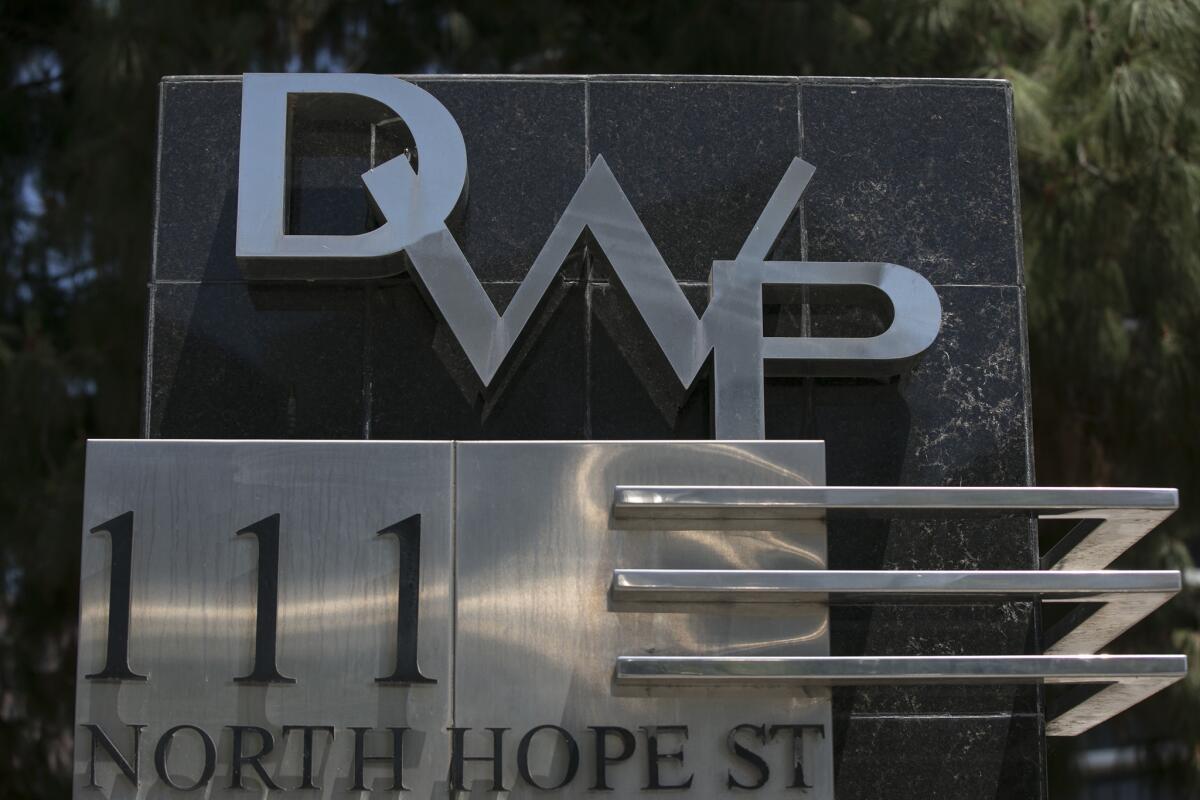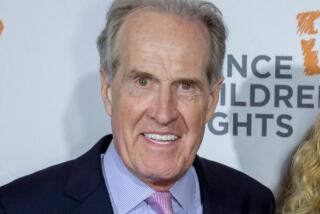Overcharged DWP customers would get tens of millions back under settlement

The Los Angeles Department of Water and Power says it wrongly billed $44 million in excessive charges after its new billing system went into effect. Some of the money has already been refunded, a utility official said, reducing the outstanding sum owed to customers to $36 million.
It was hailed as a modern makeover of an aging, inefficient way to bill customers. Instead, the new system at the Los Angeles Department of Water and Power became a nightmare, spewing out thousands of faulty bills, some wildly inflated.
When upset customers called the utility for help, many languished on hold for a half-hour or more.
Nearly two years later, the utility announced Monday that it would credit or refund tens of millions of dollars to customers who were overbilled during the botched rollout, under a proposed class-action lawsuit settlement between the utility and aggrieved customers.
In all, the department says it billed $44 million in excessive charges after the system went into effect. DWP Chief Administrative Officer David Wright said the utility has already refunded or credited some of the money, reducing the sum still owed customers to $36 million.
Under the settlement, customers who were overbilled will get credit for the excessive charges. If they have closed their accounts, they will be mailed refund checks.
The utility says the vast majority of the billing credits and refunds will be small — around $10 or less — but customers will be made whole no matter how small the error. And the money will be returned even if a customer didn’t know there was a mistake.
DWP General Manager Marcie Edwards welcomed the settlement, saying that it “makes good on a commitment I made to our customers when I was appointed to review every account and make whole any customer who was overcharged.”
“It’s a home run,” said Jack Landskroner, a Cleveland-based attorney representing one of several customers who sued the utility over the billing errors. “It’s not often you get 100% recovery for customers.”
Landskroner said some Angelenos who incurred expenses because of the billing problems, such as bank charges for overdrafts when excessive bills were automatically drawn from their accounts, will be able to submit claims for reimbursement. That could raise the refund total to more than the original estimates made by the utility, the attorney said.
The DWP — the nation’s largest municipal utility — has long been the target of ratepayer ire, even though it charges less for electricity than most of the power companies surrounding Los Angeles.
Steve Erie, professor of political science at UC San Diego, said that because the DWP must go to the City Council to pursue rate hikes, because its employee pay and benefits have been enviable compared with those of other city workers, and because it spurs even more dissatisfaction in the San Fernando Valley where heat tends to push bills higher, it has become a ready target for public anger.
With the agency now preparing to make a case for higher rates, it faces pressure to smooth relations with ratepayers.
“This is, I think, a step toward regaining the trust and confidence of Angelenos … so that it can move forward with a positive and productive conversation with regard to the rate increases that it needs quite urgently,” said David Nahai, a former general manager of the DWP.
Customers are expected to be notified of the basic terms of the billing settlement in October. Under the plan, they would receive refunds or credits by the end of next June.
The DWP has faced four different Superior Court lawsuits from Los Angeles residents over excessive charges stemming from the billing problems. Utility officials said the proposed settlement, which was negotiated with Landskroner and his client, could resolve all of those claims.
Timothy Blood, an attorney for one of the other plaintiffs who had earlier raised concerns about the process, declined to comment on the proposed settlement Monday. The court is expected to decide whether to grant preliminary approval to the settlement in September.
The deal goes beyond repayment, requiring some changes to billing practices. It would restrict when the utility can demand payment for bills that are not promptly sent to customers: Residential customers who had not gotten timely bills from the DWP could be billed only for unpaid charges for the previous nine months, instead of the last four years.
Landskroner said the proposed settlement also requires a fresh audit of 1.6 million customer accounts. And the agreement also requires the utility to spend $20 million to overhaul the billing system and taps an independent expert to monitor its progress.
DWP officials said the utility would also be legally required to meet standards for how swiftly it investigates billing problems and answers phone calls from customers. For instance, in roughly a year and a half, the average wait time for customer service must be under three minutes.
“These reforms have teeth,” Landskroner said. “If they are not pursuing these reforms, we have the ability to go back to the judge and make sure their feet are held to the fire.”
Fred Pickel, the city’s independent ratepayer advocate, said he was pleased that the utility was moving ahead with a settlement but warned that there remains significant uncertainty about the costs — both of repaying customers and implementing all the requirements of the settlement. Reports on its progress will be regularly given to the court.
“We’re worried about some of these things perhaps not turning out like what we’re expecting,” Pickel said, promising to monitor the complex process.
Meanwhile, Jay Handal, co-chairman of the Neighborhood Council Budget Advocates, said he thought “the city got off cheap” in light of the stress suffered by overbilled customers. He worried the payout was too small to nudge the city to avoid such mistakes in the future.
Landskroner said punitive damages would not apply in this case, partly because it was settled before going to a judge or jury.
Wright said the DWP had already been expecting to spend $20 million to fix the problems tied to the billing system, including paying for additional customer service representatives to handle calls, and has already hired hundreds of additional staffers.
And he said the refunds and credits would not be a financial hardship for the DWP, pointing out that the mistaken charges totaled only about 0.3% of its overall billings over the last two years.
DWP officials say the agency has made big strides since the billing fiasco first erupted: Wright said most problems had been fixed roughly a year ago and typical waits for customer service have been whittled down to a few minutes. The agency was still reeling from the billing problems when Edwards was tapped by Mayor Eric Garcetti to head the utility last year.
Garcetti said Monday that he applauded Edwards and her leadership. “Nothing is more important to me than ensuring all customers are made whole,” he said in a statement.
The city is still suing PricewaterhouseCoopers, the vendor hired to help set up the computer billing system.
In that case, the utility is arguing that the company misled DWP executives about its ability to manage such a complex system. In reaction to the lawsuit, PricewaterhouseCoopers has said the allegations have no merit and contends it is being scapegoated.
DWP officials say they hope to eventually recover all costs tied to the billing errors through that lawsuit. In addition to the proposed refunds and credits to customers, the court is expected to award up to $13 million in attorneys’ fees in connection with the four lawsuits. The final amount will be determined by the court and awarded by the DWP, which says it plans to seek that money from PricewaterhouseCoopers.
Follow @latimesemily on Twitter for what’s happening at Los Angeles City Hall.
MORE ON DWP:
Four L.A. residents file class-action suits over DWP billing errors
DWP billing system errors add $245 million to uncollected debt
Another DWP bill? No: ‘You are in the top 1% of all residential water users’
More to Read
Sign up for Essential California
The most important California stories and recommendations in your inbox every morning.
You may occasionally receive promotional content from the Los Angeles Times.












